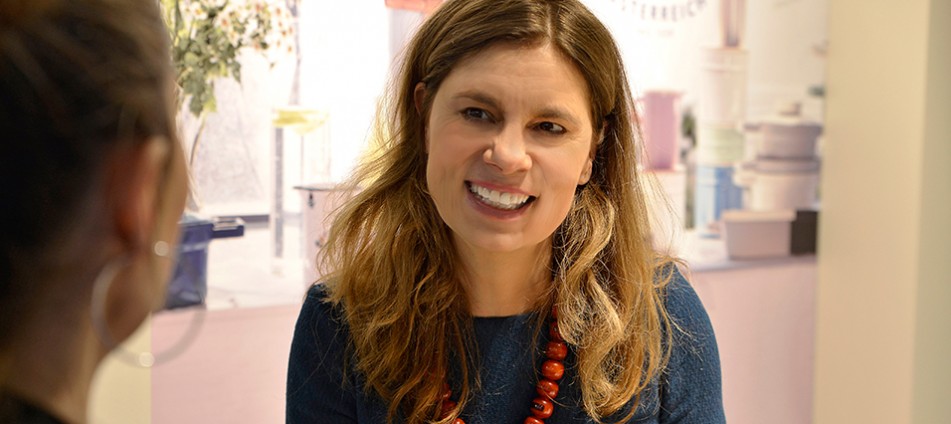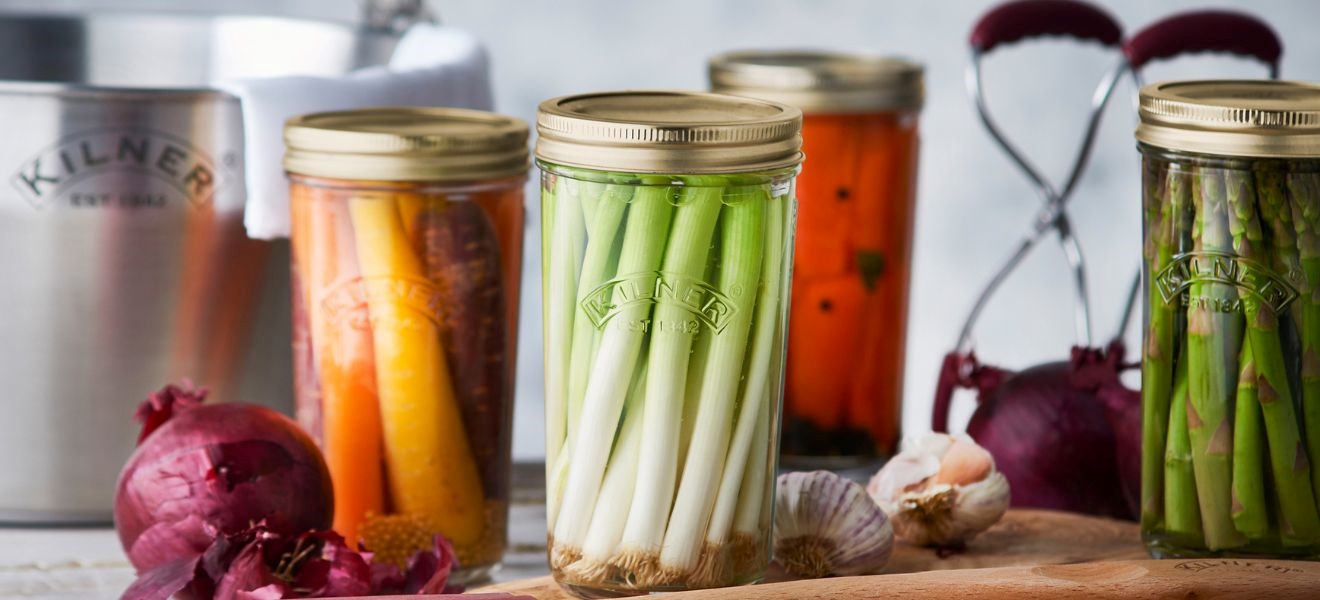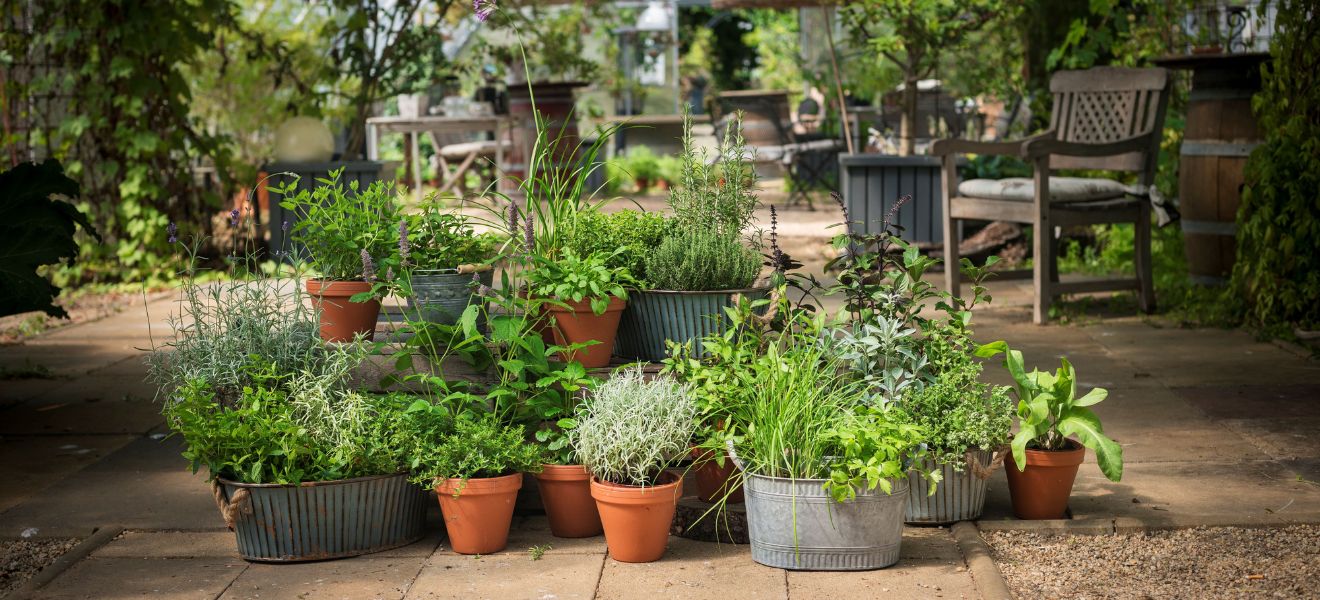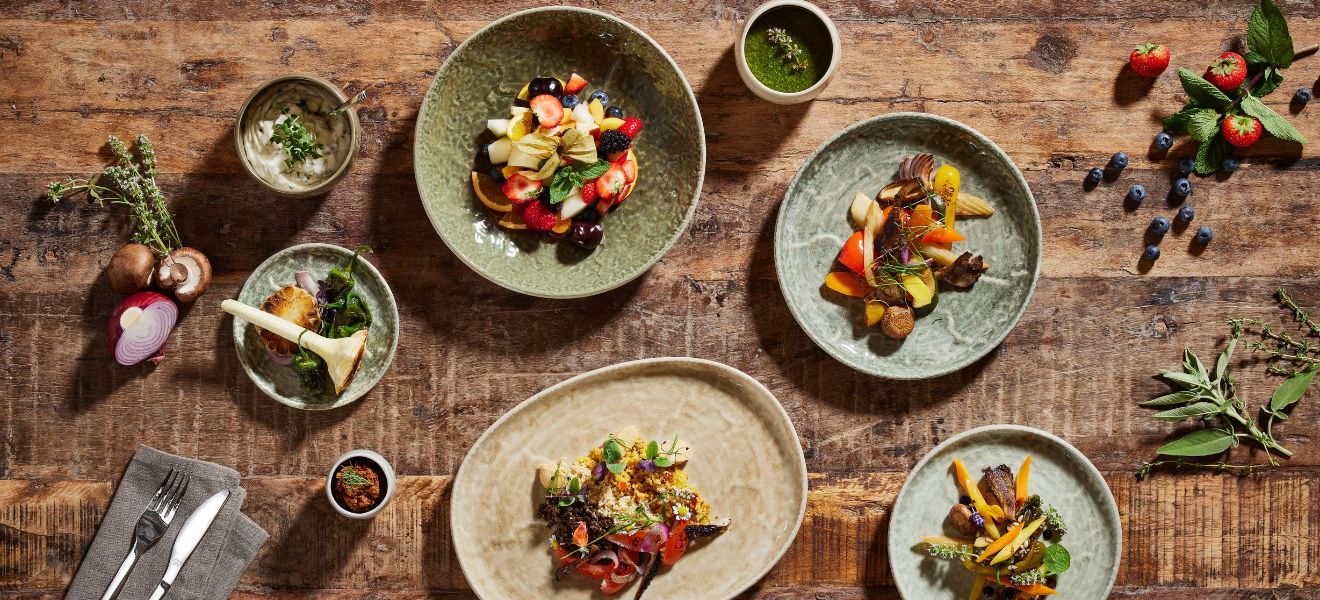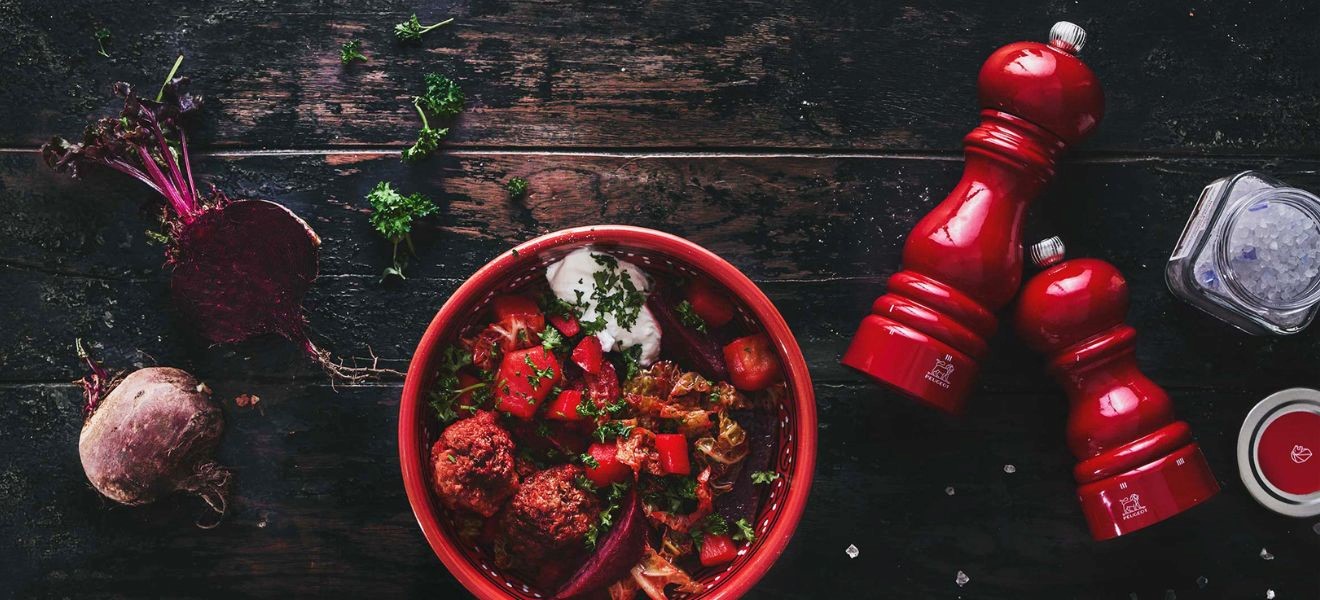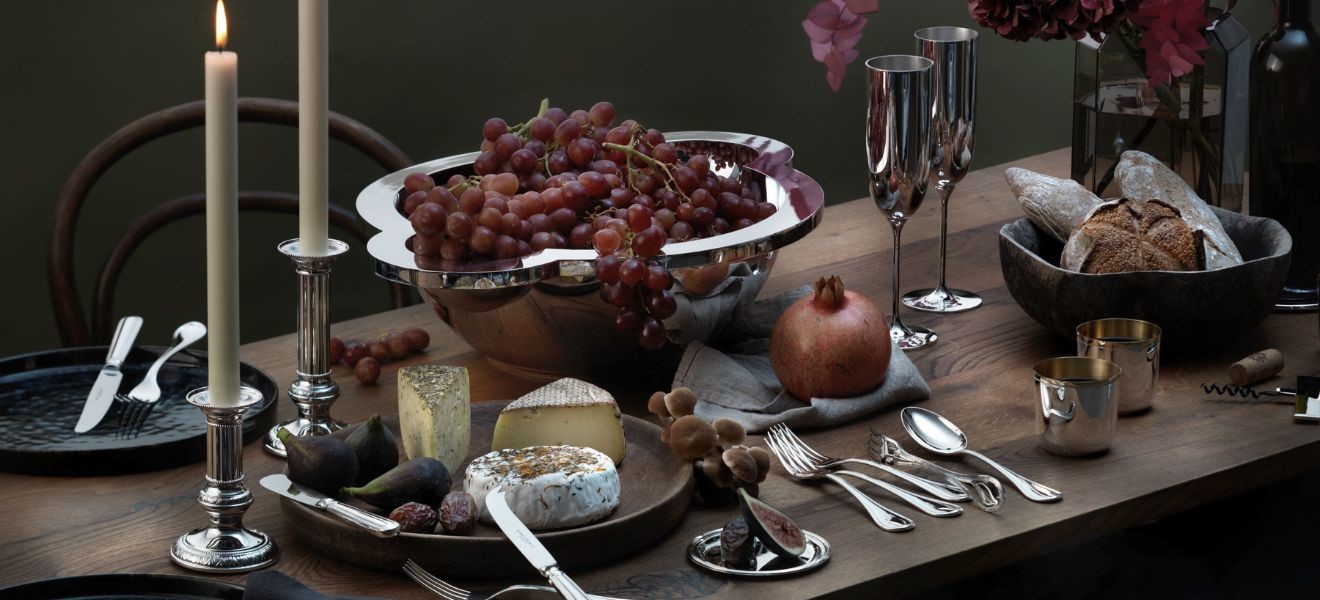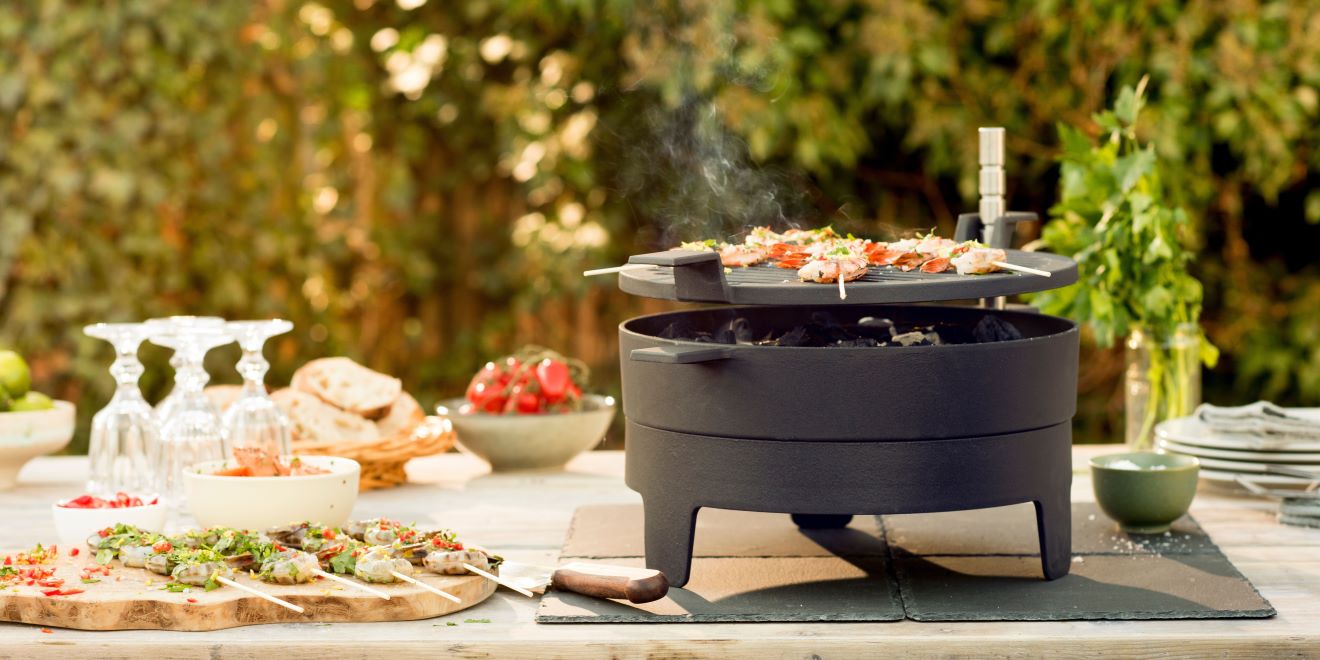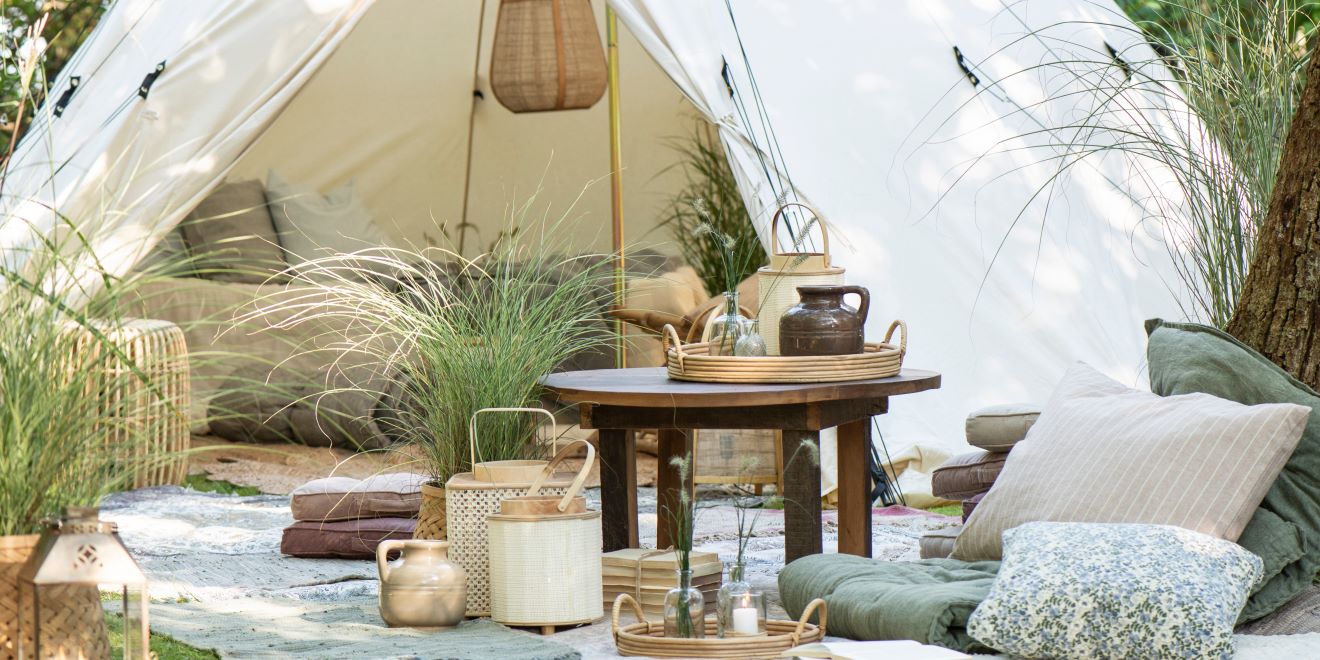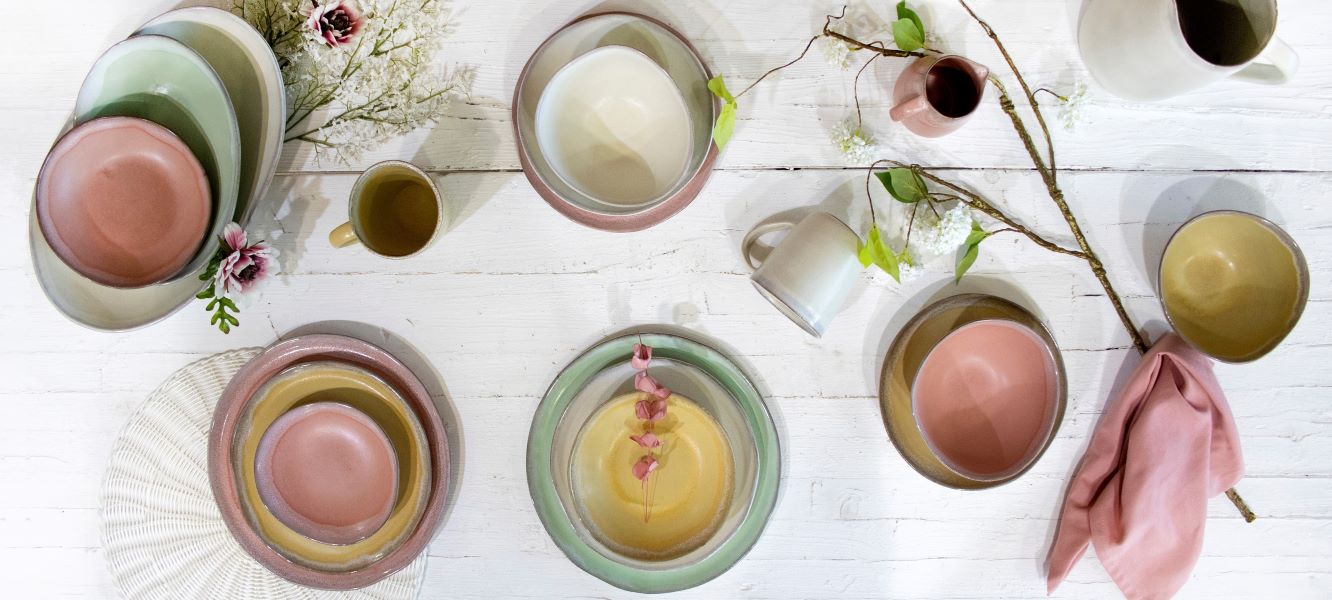Sarah Wiener loves natural things. This celebrity chef only uses ingredients that meet the highest environmental standards; her equipment must also be sustainable and ecologically compatible. For example, her enamelled bakeware collection showcases ‘the cookware material of the future’.
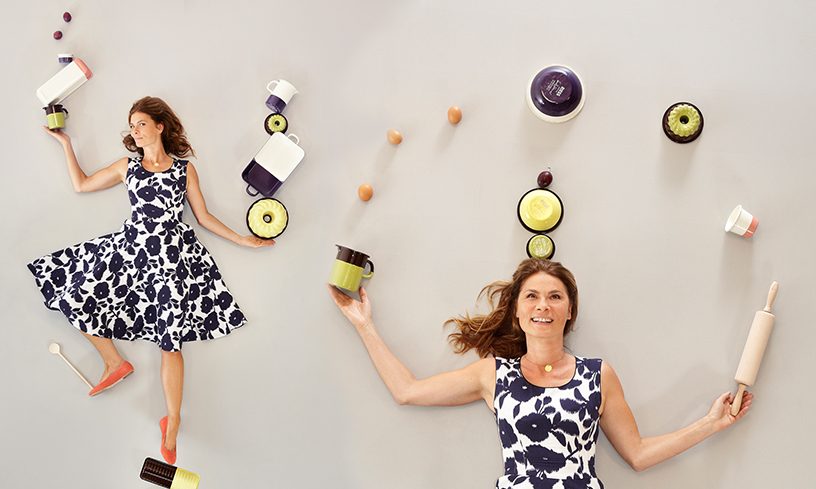
Now we’re cooking!
The ‘Sarah Wiener Edition’ is a pretty bouquet for the keen baker: the range includes dishes, cake and roasting tins, and flan dishes. For her colourful kitchen equipment, our celebrity chef has used tried-and-tested tins from traditional Austrian firm Riess and has given them a new look. Sarah asked the designers: “Please dip these exact same tins in cream and chocolate for me, and glaze them with peach, pistachio, damson and vanilla. Then bake them.” This has produced appetising goods in two-colour combinations; all hand-crafted, of course. “These are really great individual pieces, some can also be used to cook and serve soufflés, salads and more. They look amazing as decoration, too: whether on the table or in the kitchen.”
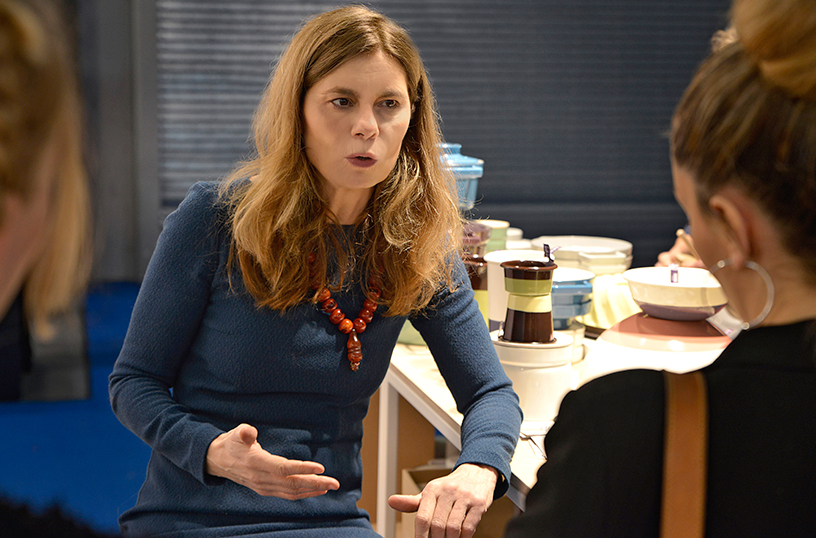
Time for a rethink!
If you’ve already had the pleasure of meeting Sarah Wiener, you’ll know she’s a warm, uncomplicated, open woman with a passion for cooking and healthy eating. She may be the best-known chef in the German-speaking world, but this lady is no diva. She can be pretty demanding, though, especially when it comes to promoting a sustainable lifestyle. “We need to understand that sustainability is more than just a trend. Otherwise we have no future,” she says gravely. “People today know more about food than ever before. I’m convinced nobody wants to continue with things the way they are. We’ve all realised that fast, cheap commodities and products only serve big companies, and even then only in the short term. Reason demands that we think and act for the long term.”
Away from artifice
Sarah Wiener had a rethink long ago, and has adapted accordingly. Her foundation, supported by the Federal Ministry of Food and Agriculture, promotes healthy eating in schools, as well as selling its own brand of organic foods. Now Sarah has joined the ranks of organic farmers. Near Angermünde in Brandenburg lies the 800 hectare farm Gut Kerkow, where she rears her own hens, pigs and cattle, grows fruit and vegetables and indulges her latest passion, beekeeping. “As I said, we shouldn’t think of sustainability as a trend, but as a kind of counter-trend, a move away from cheap, industrialised, chemically manipulated food. It’s also a move away from some ‘food trends’ which advocate a skewed type of artificial eating and nutrition. If you look at why we now experience so many more allergies, intolerances and metabolic disorders than ever before, you have to come to the conclusion that we’ve been following the wrong path.”
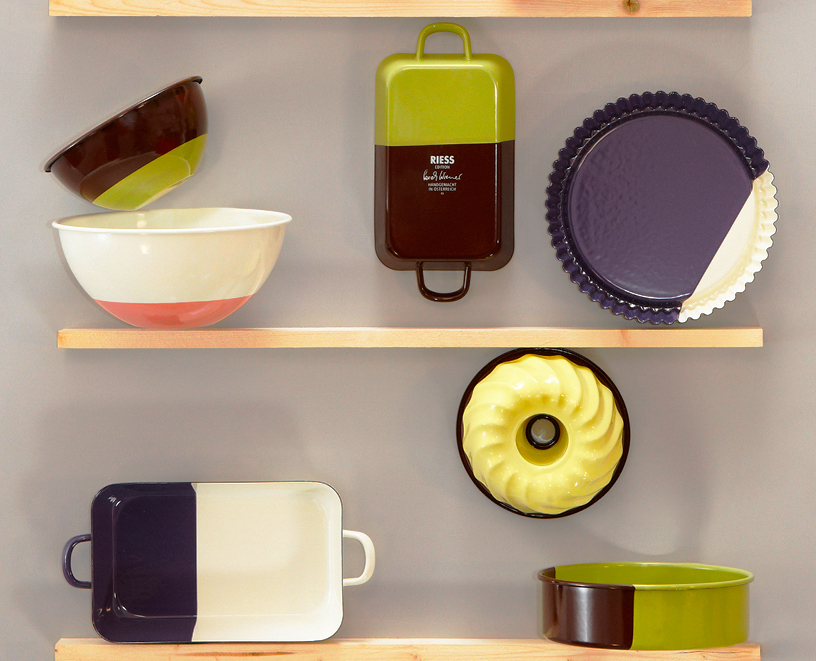
Back to our roots
Our Austrian advisor wants to bring seasonal and regional products, traditional preparation methods and the right equipment back into our kitchens. “I’m open to innovations”, she explains, and admits she couldn’t do without her electric food processor or hand mixer. Solutions that save energy and resources are also welcome in Sarah’s kitchen. “You only need a few basics. A good-quality knife you can keep sharpening, rather than a whole block full. Or a good board made from untreated wood, which you can oil and keep bacteria-free that way.” Enamel is a material which fits perfectly with this list of natural, traditional must-haves. “It’s 100 % recyclable, conducts heat perfectly, is odour-neutral, bacteria-inhibiting and even suitable for induction hobs. If you ask me, that’s the kitchen material of the future.” Yet you might assume it was a thing of the past: the Austrian manufacturer Riess has been producing enamelled items for over 450 years. Or perhaps that’s precisely why its future seems assured. “Enamel cookware is for life. It contains no pollutants, is robust, and looks good even as it changes over time. You can hand it down to your children; now that’s what I call sustainable.”
